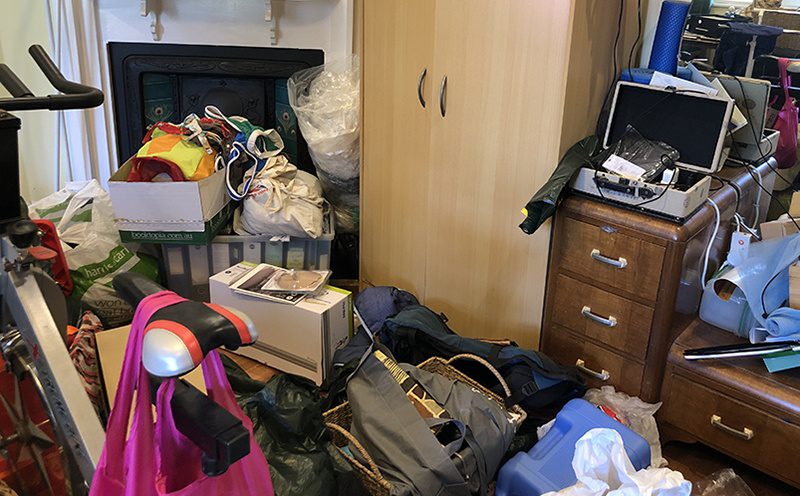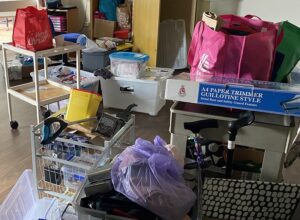
If I had a dollar for everyone who looks at their clutter and says “I have no idea why this is here”, I’d be rich. Why do we do this? Why do we clutter?
There is no doubt that clutter steals our time, our energy and our spaces. It’s a sneaky invader which requires a concerted effort to tame.
Why do we clutter?
How does it creep in? I have some thoughts.
- Fear of running out.
Solution: Think again. Is availability really the problem? Unless you live remotely, I’m sceptical. Even the great toilet paper scare of 2020 was a non-issue. - Fear of scarcity.
Solution: Ask yourself – do you really think you will have to resort to wearing the clothes you hate due to your financial circumstances? Unlikely. - Consumerism. Our culture tells us to keep acquiring, and we get a dopamine hit from buying something new. But it inevitably results in accumulation.
Solution: Remember – you are enough. Without The Thing.
And if you must buy that dress, are there a couple of garments you can donate to make space for it? Can you impose a cooling off period before purchasing? Can you do something else besides shop for fun? - Sentimentality. We attach memories to items.
Solution: Try to set space boundaries for non-useful things. Gather all your sentimental items in a pile. (Tip: if you are only keeping a dress because of a memory and you will never wear it, it’s sentimental – not viable clothing.) Decide how much space you want to assign to sentimental items, and trim your pile accordingly. Remember – if everything is special, nothing is special. - The Endowment Effect. It means that once we have owned something, we value it more. Test yourself – would you buy that ‘favourite’ mug if you had never owned it and saw it in a shop today?
Solution: be aware of the phenomenon, and try and be objective, or have a friend or professional help you declutter. - Fear of waste.
Solution: If it can be used by someone else it’s not going to be wasted. Check Where Can I donate my Stuff? If it can’t be used by anyone, it is already landfill and living with it doesn’t help. - Lack of time. We all have time, the issue is what we choose to do with it. Being idle during Covid lockdowns made many of us realise that time is not the problem after all. Also, how much time do you spend looking for items you own?
Solution: Make the time. Hire or enlist someone for accountability if need be. - Lack of space. If it this was the reason, large houses would have no clutter, and that’s not the case.
Solution: Create space by culling. - Mental and physical ill-health. Passive decline of your home due to mental and physical health problems is legit.
Solution: Get assistance. If you have funding, see if you can get a cleaner or professional organiser onboard.
And the big one is:
Procrastination.
For example:
- Coming in from a big day out and dumping your bags, saying you’ll unpack them later. (I have seen these bags still untouched and collecting dust years later)
- Tossing random items in a ‘junk drawer’ with no further plan for them.
- Putting unopened mail and unread brochures in the fruit bowl.
- Leaving your drinking vessels on the counter.
- Shoving unfinished projects in spare rooms.
- Piling up half-read books on your bedside table.
- Abandoning an unwanted gift rather than returning or donating it.
- Re-hanging ill-fitting clothes in your wardrobe rather then moving them on.
- Leaving things you have used in situ rather than putting them away.
- Not committing to a decision on what to do with an item, so letting it sit in the corner.
Why do we clutter? Because being decluttered requires ongoing decisions and actions which can be tiring, so we say “I’ll deal with it later”. Later: the enemy of tidiness, the opposite of intentionality, the sidekick of clutter.
In short, clutter generally results from a lack of action rather than a conscious decision.
Solution: It’s not easy. Accountability and getting shit done go hand in hand. Find accountability from friends, hire a professional, start a good habit, try the Pomodoro technique, start small) and chip away.
One thing’s for sure – if you are trying to solve the “why do we clutter?” problem, you are half-way there.






























